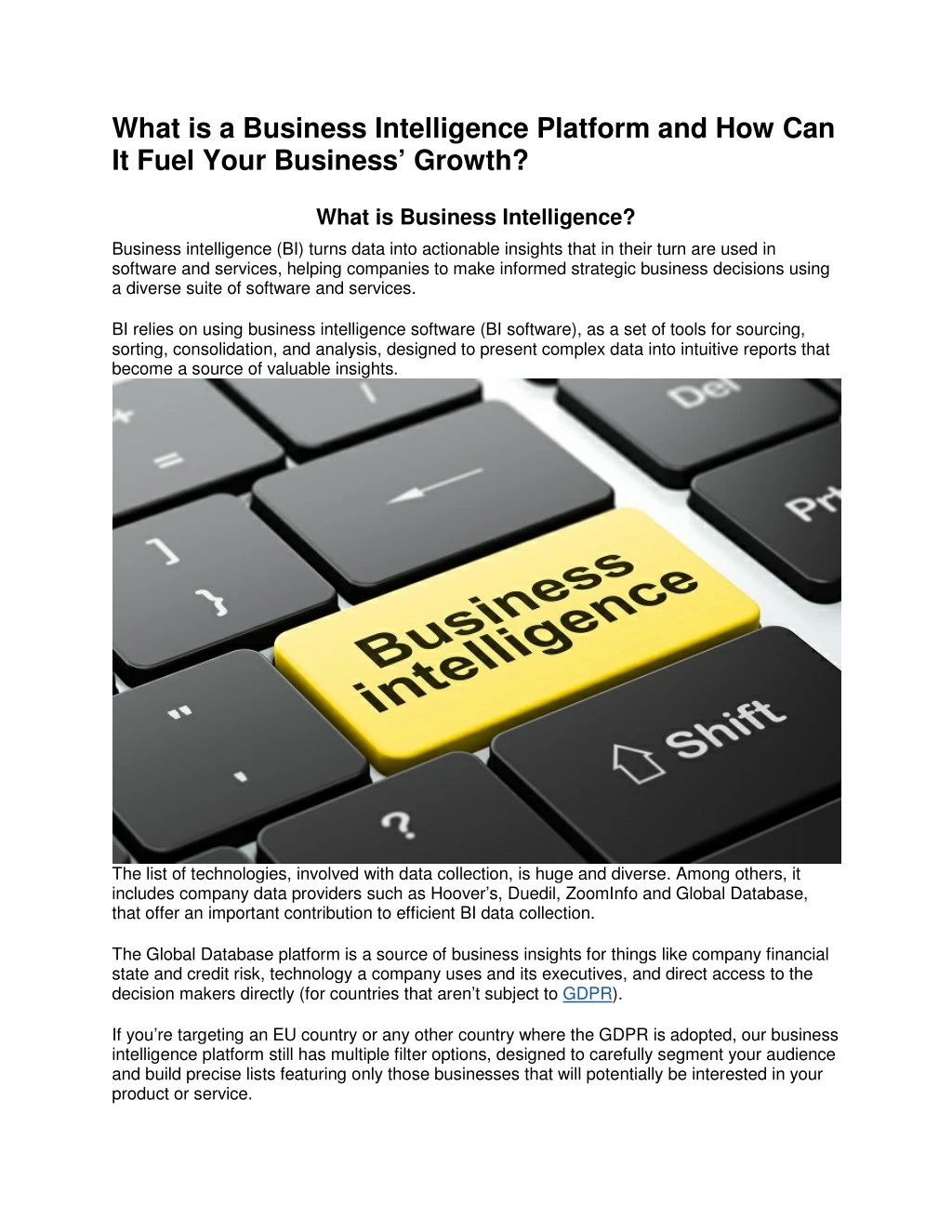


If most people have come to associate AI with complex algorithms in general - for better or worse - then they will likely be getting what they expect. However, since many eventprofs may not be making this distinction between ‘real’ AI and sophisticated automation, they are not necessarily being misled.
BUSINESS INTELLIGENCE PLATFORM SKIFT HOW TO
It wouldn’t have learned how to do that itself it would have been programmed.” As Clayon explains, “this wouldn’t be AI because it wouldn’t be using a neural network. However, this criteria is not always met in features that are marketed as AI.Īn example of this would be a matchmaking algorithm that matches attendees and provides recommendations based on predetermined criteria, but doesn’t improve on its own using data it collects as the event goes on. This is distinct from non-AI algorithms that - while they can also be quite complex - simply execute specific instructions as defined from the outset in the initial programming (barring any bugs).Īccording to Simon Clayon, Chief Ideas Officer at RefTech, one of the hallmarks of AI is precisely its ability to learn and get better at its task over time as it receives feedback. Machine learning, which is a subset of AI, is considered a more precise term to describe one of its main current uses: to evaluate data and learn to make decisions for itself over time. So, what does AI really mean, and when can it be used in events?ĪI is a relatively broad term that is generally defined as the ability of a computer or machine to simulate human intelligence or behavior. However, many of these features are powered by sophisticated algorithms that may not necessarily be AI in the strict sense.

For example, 46 percent of participating apps in EventMB’s Event App Bible 2021 report reported that they offer AI-powered attendee matchmaking, which is currently one of the most common AI-related claims in event platforms. In the event industry in particular, more and more event tech offerings now market AI features. However, there are some common misconceptions about what AI actually is, having often become synonymous with automation or, more generally, thoughtful computer programming. Artificial intelligence (AI) and machine learning technology have come a long way in recent years, and they have a wide range of applications.


 0 kommentar(er)
0 kommentar(er)
